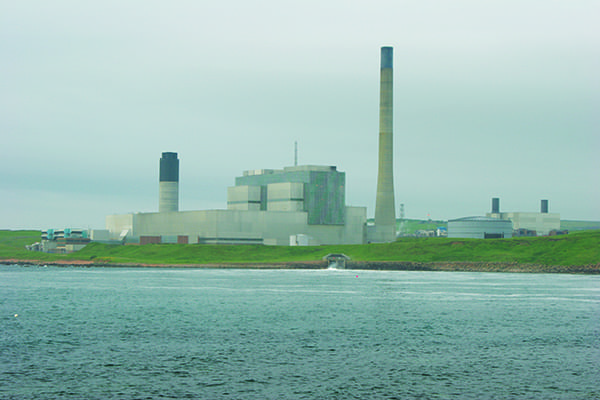Scotland to Press Ahead with CCS in Response to UK Inaction
The UK dropped the ball on carbon capture and storage (CCS) development and Scotland intends to pick it up, Scottish First Minister Nicola Sturgeon announced in early September.
In the government’s program for 2017–2018, Scotland vowed to “provide leadership on carbon capture and storage (CCS).” The document goes on to state that “The UK Government’s apparent withdrawal from CCS risks the North Sea’s potential as the largest carbon storage resource in Europe.”
In a 2016 working paper released by Scottish Carbon Capture and Storage, the organization reported that Scotland is in an ideal position to lead on CCS development in Europe. “Scotland has a huge advantage here with fully characterised offshore storage sites accessible using existing legacy pipelines. These pipelines are strategic national assets; they should be retained and preserved as a low-cost route to storage in the future for Scotland’s large industrial emitters, even though they may not be used for initial, small-scale projects,” the report says.
To meet its goal, Scotland will provide£100,000 to help fund the feasibility stage of the Acorn Project, a minimum viable full-chain CCS project in the works at St Fergus in Aberdeenshire. The project will repurpose an existing gas sweetening plant with an existing offshore pipeline.
The developers of the project seek to design the smallest industrially viable full-chain CCS project and to “act as a seed from which broader national CCS infrastructure and industry will grow.”
CO2DeepStore is developing the project. Pale Blue Dot Energy has been contracted to lead the project alongside research partner Bellona and academic partners Scottish Carbon Capture and Storage, the University of Liverpool, and the Radboud University.
Scotland has long supported the development of CCS, and its government expressed disappointment in November 2015 when the UK government canceled a£1 billion CCS commercialization competition. The competition was launched in 2012, and a funding decision was expected in late 2015 or 2016.
Two projects remained in the running for the award: Royal Dutch Shell’s Peterhead project in Aberdeenshire (Figure 6) and the White Rose CCS Project in Yorkshire. Peterhead would have been the world’s first full-scale gas CCS plant. White Rose was managed by the Capture Power consortium and would have been a new-build coal-fired power plant with CCS. A week before the CCS competition announcement, the UK government announced plans to close all unabated coal-fired power plants by 2025, signaling a move to lower-carbon forms of energy.
After the announcement the developers of both projects halted their plans, citing a lack of government support. “Government funding to support this world-first demonstration project, through the competition, was important to achieving the aim of making the technology commercially viable in the shortest possible time. While we acknowledge that this decision has been made in the context of a difficult spending review, without that funding, we no longer see a future for the Peterhead project in the near term,” a Shell announcement released after the competition’s cancelation says.
According to statements made by government officials after the cancellation of the competition, the decision was financial and not a reflection of disapproval of the technology.
For more than a year since the cancelation of the commercialization competition—and in the midst of the chaos of Brexit—Scotland has been pushing the UK to move forward with CCS development. According to the 2017–2018 program, that is not about the change. “While continuing to press the UK Government to put in place the policy and financial framework to secure CCS investment in Scotland, we will provide early stage support of£100,000 to underpin the feasibility stage of the newly proposed Acorn Project at St Fergus in Aberdeenshire,” the document says.
—Abby L. Harvey is a POWER reporter.
